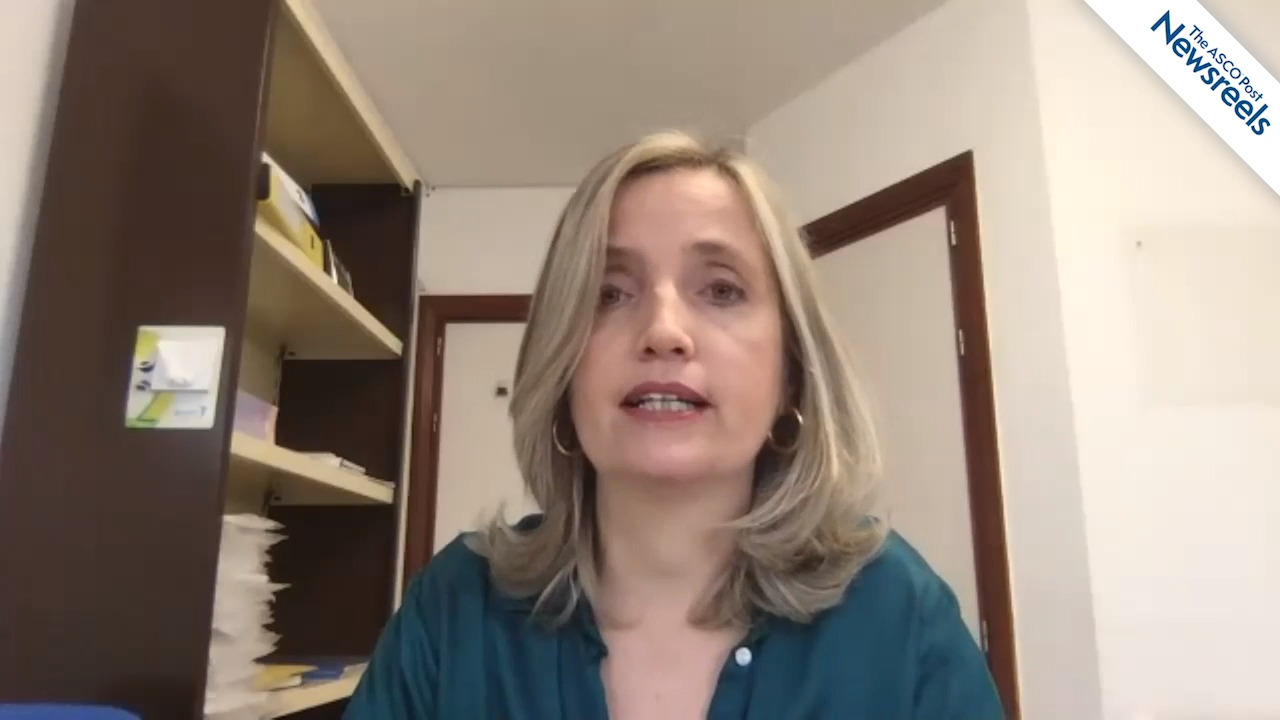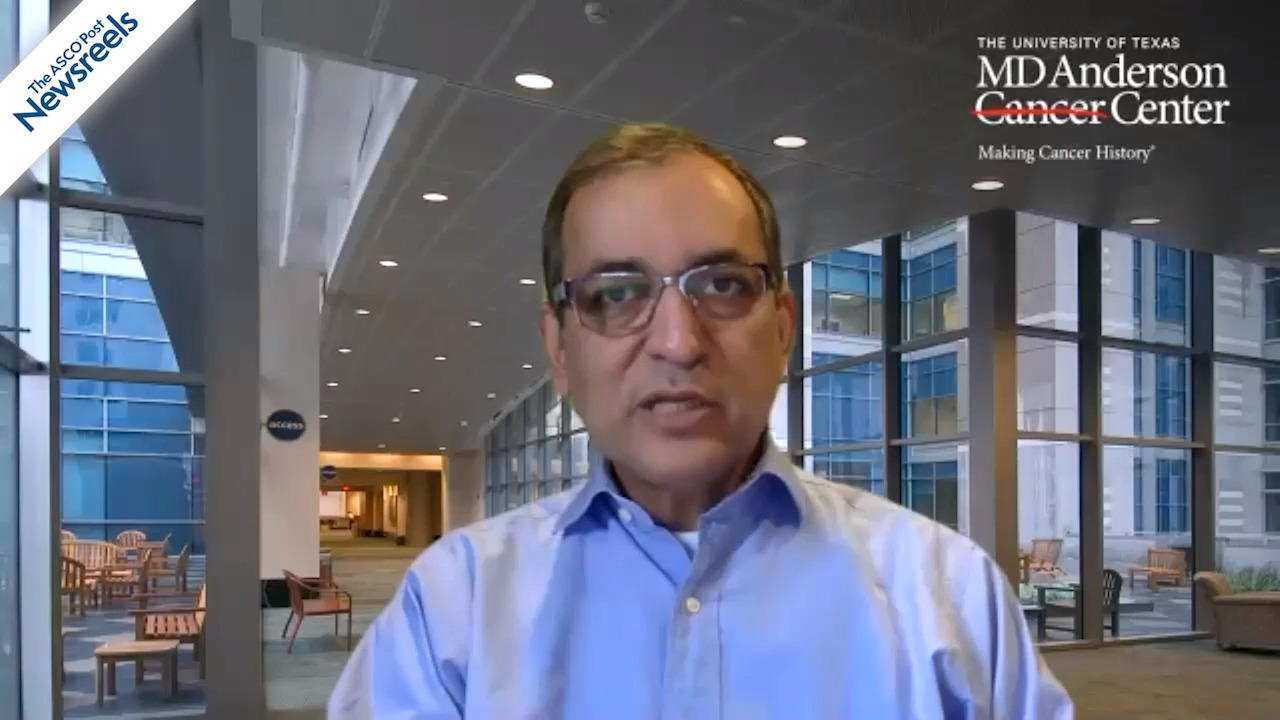Romain Cohen, MD, PhD, on Colon Cancer: Prognostic Value of Tumor Deposits
2021 Gastrointestinal Cancers Symposium
Romain Cohen, MD, PhD, of the Mayo Clinic and Sorbonne University, discusses a post-hoc analysis of phase III results from the CALGB/SWOG 80702 study, which showed that adding the number of tumor deposits, a negative prognostic factor, to the count of lymph node metastases may improve the accuracy of TNM staging (Abstract 10).
The ASCO Post Staff
Tenna V. Henriksen, PhD Candidate, of Aarhus University, discusses her findings on how circulating tumor DNA may help assess recurrence risk and the benefit of adjuvant therapy, and more quickly detect early relapse after treatment in patients with colorectal cancer (Abstract 11).
The ASCO Post Staff
Thierry André, MD, of Hôpital Saint-Antoine, discusses results from the GARNET study, which showed that dostarlimab, an anti–PD-1 antibody, demonstrated durable antitumor activity in patients with mismatch repair–deficient colorectal and noncolorectal solid tumors. No new safety signals were detected, and most treatment-related adverse events were of a low grade (Abstract 9).
The ASCO Post Staff
Wasat Mansoor, MBChB, PhD, of The Christie NHS Foundation Trust, discusses phase III results from the KEYNOTE-590 trial, which showed no deterioration in health-related quality of life when pembrolizumab was added to chemotherapy in patients with metastatic and unresectable esophageal cancers (Abstract 168).
The ASCO Post Staff
Rocio Garcia-Carbonero, MD, of Hospital Universitario 12 De Octubre, discusses results of the phase II/III AXINET trial, which showed that axitinib plus long-acting release octreotide improved overall response compared with placebo and octreotide in patients with advanced grade 1 or 2 extrapancreatic neuroendocrine tumors. However, no significant improvement in progression-free survival was observed (Abstract 360).
The ASCO Post Staff
Milind M. Javle, MD, of The University of Texas MD Anderson Cancer Center, discusses phase II study results showing that the novel tyrosine kinase inhibitor infigratinib may prove to be effective in treating patients with advanced cholangiocarcinoma harboring an FGFR2 gene fusion or rearrangement (Abstract 265).





